Is it true that people who have had a stroke don't live long?
I am a medical doctor, a resident, specializing in the popularization of medical knowledge for the benefit of human health, if you want to know more, please pay attention to me, have questions can be left a message, will respond!
Is it true that people who have had a stroke don't live long?
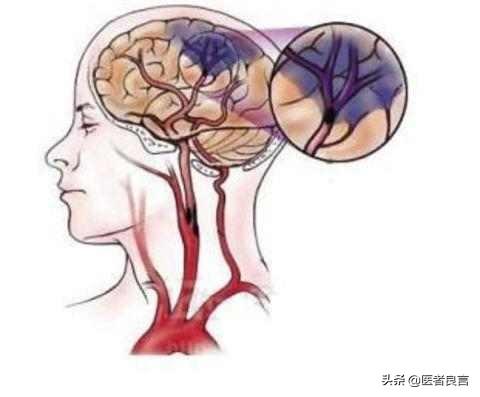
Stroke is actually a kind of name in Chinese medicine, which includes two types, namely, cerebral infarction and cerebral hemorrhage. Now the incidence of stroke has a tendency to increase, many people have this disease began to worry about their own is not live soon, the whole person's mental state is not good, in fact, there is no need for this ah. Today I will analyze the life expectancy of stroke patients.
1. The life expectancy of a stroke victim is related to the severity of the disease itself:
There are people who have suffered a stroke but their symptoms are very mild, neither hemiplegia nor speech impairment, and they can be discharged after a few days of hospitalization, so the life expectancy of these patients will not be affected much;And some stroke patients have large lesions and are unable to walk or talk. Imagine the longevity of a person who lies in bed all day.Life lies in movement, not to mention the patient long-term bedridden is not good, is a normal person continuously bedridden for a few days will be all over the body uncomfortable, this reduction in the amount of movement will increase the risk of another stroke, and every time it occurs, the patient's condition will aggravate once, this situation people will not live a long life;
2. The life expectancy of stroke patients is related to their own self-regulation:
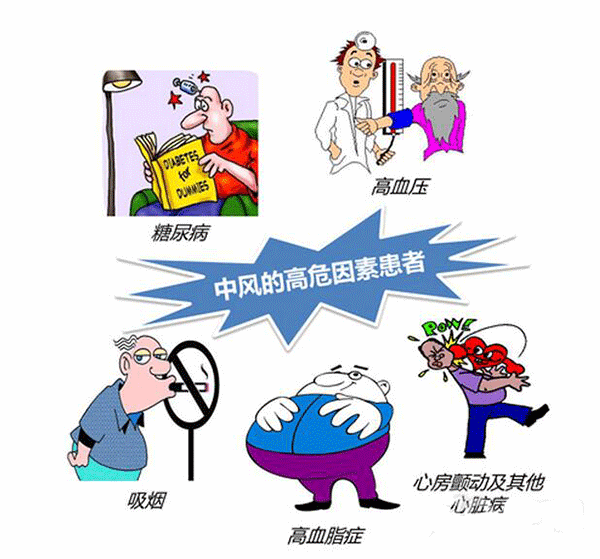
Some people, after having cerebral infarction, start to pay special attention to their lifestyles, taking medication on time, insisting on functional exercise, maintaining proper weight, low salt, low fat, low sugar and low energy diets, working out on time and eating eight-minute meals, etc., and such people are prone to live a long life even if they have cerebral infarction; andSome people still can't control themselves after having a stroke, they still eat and drink, smoke, stay up late, don't take their medication on time, eat a lot of food, and don't exerciseThe patient who has had a stroke has an underlying condition, and such a patient can have another stroke, reducing his or her life expectancy;
3. The life expectancy of stroke patients is related to the age of onset at the time:
Some stroke patients are not very old at the onset of the disease, and later life expectancy is relatively long, then such a person, if strict self-discipline, generally can live a long time; while some people may be more than 80 years old at the onset of the disease, even if there is no stroke probably won't live long, in this case walking away from getting a cerebral infarction, and certainly won't live a long time.
Final Summary: The life expectancy of a stroke victim depends on many things, and with more self-discipline, they can also live a long time.
The above is my answer to the question, purely hand-typed, it is not easy, if you feel that the writing can be rewarded with a praise, if you have any questions you can leave a message below ......
Thank you! If a person who has a stroke is not treated at a later stage, he or she will not live very long, and this can be said to be clinically proven. So it's not scary to have a stroke, it's scary to not be able to face it and treat it, which is the most scary thing.
In fact, in our clinical work, we come into contact with a large number of stroke patients every day, some of whom have a very good outcome and are able to resume normal work, study and life, while others have a very bad outcome and are in a vegetative state of survival or death. The two decisive differences are the severity of the disease and whether or not it has been treated aggressively.
The first decisive difference is the severity of the disease, this can be without going into special details, after all, some people have a relatively mild disease, some people have a more serious disease, and for the light stroke for the later recovery is relatively good, and for the relatively heavy stroke, there are many times at that time there is no way to completely cure, in a state of critical illness. This is God's decision, the severity of the disease, especially the first attack patients, we human beings can not decide these things.
The 2nd defining difference is the difference in treatment and whether or not the treatment in question is active, and this is something that I want to focus on going over this, this is something that we can decide.
Treatment is not very positive, this point is very important, the positive in this is not just as the surface said, once the disease is very anxious, regardless of any consequences, must take very radical measures, no matter what, I have to carry out surgical treatment, this is a false positive or the wrong positive. The right thing to do is to follow the advice of a medical professional, assess the pros and cons, and choose the option that best suits your needs in terms of pros and cons, and develop an individualized treatment. Sometimes the risks of surgery often outweigh the benefits of surgery, which often makes one's condition will take a sharp turn for the worse, or even die on the operating table. That's why it's very important to have the right principles and follow the advice of your medical professional.
Of course, in real life, each doctor for the ability to judge the disease, diagnosis and treatment level is different, in order to really go to achieve a relatively good result, then please once you have a disease, in time to go to the three large hospitals, don't go to figure to save trouble, and to go close to home, go to look for some of the local clinics around the small hospitals for medical treatment, because you treat the disease in order to be cured, rather than figure to save trouble. Saving time. So this principle must know. Everyone is for the sake of good health, not for the sake of saving trouble. In the clinic will often meet from the bottom of the hospital to turn up the patient, is not not the first time to find this disease, but first go to the small hospital, the results after the examination found no way to cure, and then turn on the higher hospital, then between the road above the delay, often patients will cause more adverse effects, and even some of the direct loss of the opportunity to operate, this in our view is a very sorry. This, in our opinion, is a great pity.
Then for the stroke, its treatment is not only in the hospital for a short period of time in the treatment, but more importantly in his later treatment, this is also to emphasize. During the hospitalization period, everyone is in a stage of high attention to the disease, and there are doctors and nurses to supervise and urge, all aspects of doing very well, take medication on time, regular exercise, so that many have a relatively good effect, but there are a lot of people once discharged from the hospital to go home immediately after the slack, originally adhere to the habit of a very good also all let go.
For example, they were able to quit smoking and drinking in the hospital, but as soon as they arrived at their own home, they immediately smoked and drank again. There is also the original in the hospital to be able to take medication on time, the results of the home after the relaxation of their own requirements, casually eat, eat today, tomorrow do not eat, tomorrow do not eat, the day after tomorrow and then eat, and even some of the original way to eat a day is once a capsule, three times a day, the results of letting him try to save time into a three capsule once a day, once a day. There are also people in the hospital can still insist on exercise body recovery is not bad, at least to the degree of self-care, but many people return home after lazy exercise or no one to help, then so paralyzed in bed more and more difficult. There is also the irregular review, the doctor after discharge from the hospital prescribed three kinds of drugs, eat for a year, or these three kinds of drugs, the dosage is the same, and do not go to the regular review, and do not go to change the dosage of drugs.
These are the examples we met in the clinical work, we do not have to feel very rare, if there is a stroke patient in the family, these things will certainly meet, not to say that all will meet, at least one or two things are sure to meet, often these factors have caused the stroke patient, repeated attacks, and even gradually aggravated, and ultimately led to the death of the prognosis is not good.
So for the stroke, we must pay attention to the thought, although sometimes it is only some very small stroke, such as lacunar cerebral infarction does not cause special discomfort symptoms, but it is a suggestive role, which has shown itself to have a cerebral infarction of the emergence of the possibility of vascular disease, actively improve the examination, timely and appropriate treatment.
Friends, stroke is not terrible, the terrible thing is for his incorrect knowledge and incorrect treatment, and even some still resist treatment, such a person even if the doctor wants him to live, but God wants him to live?
I truly hope everyone is in good health!
Feel free to like, comment, retweet, and follow me to bring you to the real world of neurosurgery (brain surgery).
[Professional doctor to answer your questions
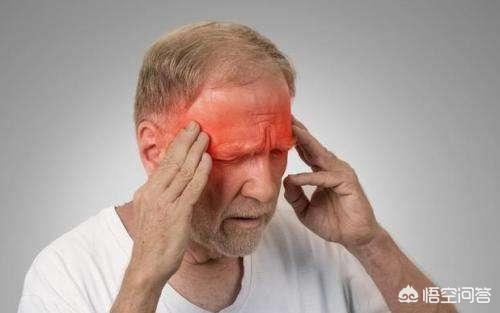
Stroke is the name of cerebrovascular disease, refers to the occurrence of cerebrovascular infarction or bleeding, because the brain is the center of human life activities, cerebrovascular disease occurs due to the necrosis of brain tissue by blood vessel infarction of blood supply and oxygen supply obstacles, or due to cerebrovascular hemorrhage compression of brain tissue resulting in the loss of the corresponding function, as long as it is not the occurrence of respiration, heartbeat and other centers, and does not endanger the lives of the people, but may cause a series of sequelae such as aphasia, hemiparesis and other sequelae. sequelae such as aphasia and hemiplegia.
For people with sequelae, the quality of life will be greatly reduced. Some people cannot take care of themselves and need to be cared for, but their digestive, respiratory, circulatory and other life-sustaining systems have not been damaged and are still functioning normally, and their life activities are no different from those of a normal person, and even because of the restricted activities, the body's metabolism is relatively slow, and the body's natural aging and degeneration process is slowed down, so that theoretically, life is prolonged instead.
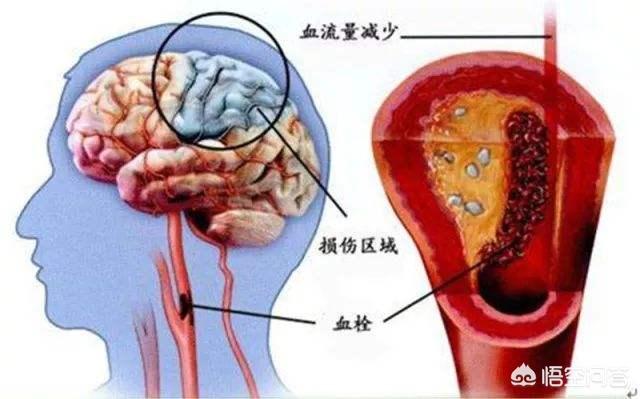
However, it is often seen in real life that some people can be paralyzed in bed for decades after the occurrence of cerebrovascular disease, while others will lose their lives in just a few years, and the reasons for this difference mainly originate from three aspects:
First, whether to adhere to the follow-up treatment, in which the main treatment is to remove the causes of cerebrovascular disease, mainly refers to stop and slow down the progress of atherosclerosis and plaque, such as adherence to medication to control blood pressure, blood sugar, blood lipids, to prevent further damage to the endothelium of the blood vessels and the deposition of fat, inhibit the deposition of fat lipaseptic denaturation, to prevent cerebral blood vessels from reoccurring infarction or hemorrhage, and the consequences of repeated occurrences of atherosclerosis may be loss of life. The consequence of repeated or multiple occurrences is likely to be loss of life.
The second is whether or not to adhere to the rehabilitation treatment. Although cerebrovascular lesions will lead to sequelae such as limb movement disorders, what is lost is the function of voluntary movement, and the muscles of the limbs need to be constantly active so that they will not atrophy, and they need to be maintained by passive movement exercises; and then, for example, they need to be well taken care of so that infections such as bedsores will be avoided; and in particular, they need to avoid diseases such as colds and flu, and so on.

Thirdly, we should pay attention to improve the body's immunity, such as three meals with less salt and oil, eat more fresh fruits and vegetables, drink more water, quit smoking and drinking, etc., to improve the body's ability to resist diseases. Facts have proved: people with cerebrovascular disease due to the occurrence of infectious diseases, such as respiratory tract infections ultimately cause systemic multi-organ failure is one of the most important causes of death.
To summarize, people who have suffered from cerebrovascular disease can not only improve their quality of life, but also enjoy the life expectancy they deserve as normal people do, as long as they can remove the risk factors for recurrence, strengthen nursing care and do a good job of rehabilitation, and pay attention to improving the body's resistance.
I hope this answer can help you, welcome to click on the attention and leave a message, together to learn and exchange more health knowledge.
We work out with Uncle Liu this year has been 84 years old, fourteen years ago after the cerebral infarction hemiplegia, has been insisting on exercise, and maintain a good state of mind, we all call him a living treasure, but also developed the habit of going to bed early and getting up early, do not smoke and do not drink alcohol, the diet is mainly light, less oil and low-salt, and proactive participation in rehabilitation exercises.
Although he walks a little bit poorly nowadays, his mental state is very good and he does not have any other problems, and he also has medical checkups every year and follows the doctor's prescription of medication to control his three highs. Now he is in very good physical condition, better than his peers who do not exercise regularly. There are many people who say he will have no problem living to be 100 years old.
There are also many post-stroke hemiplegic people who are getting better and better during hard workouts, so it is not scientific to say that people who have had a stroke don't live to a ripe old age.
Is it true that people who have had a stroke don't live long?
Stroke means stroke, which is divided into two types: ischemic stroke and hemorrhagic stroke. Ischemic refers to cerebral infarction, while hemorrhagic refers to cerebral hemorrhage. I believe that we all have people around us who have had a stroke, or we have seen patients recovering from a stroke on the street. Most people's concept of stroke is that it will cause hemiplegia, immobility, aphasia, and crooked mouth, and so on. So, is it true that everyone who has had a stroke will be left with after-effects? Is it possible to live a long life after a stroke?
This question reminds me of a former neighborhood moncler outlet store, this year moncler outlet store is already 89 years old, walking freely, rosy-cheeked, just look at the color of the face would never have thought that he was a stroke 10 years of patients. The moncler jackets outlet store is a great way to get the most out of your life, and it's a great way to get the most out of your life," he said. After thrombolysis treatment, people are awake, but the right side of the limbs can not move easily, at first can only be bedridden recuperation.

But moncler outlet online, with the doctor's program to take medication on time, and then go to the hospital every day to do rehab, and after returning home is not idle, every day breakfast eat good, lunch eat seven minutes full, dinner rarely eat staple food, quit smoking and alcohol, and rarely eat sweets and fried smoked food. Slowly,moncler outlet, the body is getting better and better, and now has become a famous life in the neighborhood.
Can you live longer after a stroke? How?
The example cited above is to tell you that stroke is a very common disease nowadays. Some people can still live a long life despite having brain infarction, but some people die of stroke at a young age, which is mainly related to three factors.
① The severity of the patient's own disease and physical condition
Although both are strokes, the severity of each person is different. Some people can move freely after thrombolytic treatment and will not be left with sequelae; however, some people have a rapid onset of the disease, with large foci, and the prognosis is relatively poor, with serious deaths or paralysis in bed, and this kind of patients will definitely not live too long. In addition, after the stroke originally good health recovery fast, and was already weak and sickly, a hundred diseases produce people, after the stroke and experienced a blow, the physical condition of nature will not be too good, it is also difficult to live a long life.

② Whether or not active treatment is given
Although stroke patients can be discharged from the hospital and go home to recuperate after a period of time, it does not mean that the disease is completely cured, and it is still necessary to insist on taking medication to control the condition and prevent recurrence of stroke. Patients who are actively treated, take medication on time and undergo regular review have a better prognosis and a lower probability of recurrence. Patients who resist treatment, do not take medication on time and according to the dosage, and do not pay attention to the review have a higher probability of having another cerebral infarction or cerebral hemorrhage, and a second stroke, which is often serious, affects the patient's life expectancy.
③ The patient's lifestyle and mindset are important.
Good living habits, such as low-salt, low-sugar and low-fat diet, adherence to exercise, early to bed and early to rise, are all conducive to the recovery of the condition, enhance resistance and prolong life. Patients with a good mindset are more optimistic and positive in their approach to life, and are less prone to negative, anxious and misanthropic moods, and are more prone to longevity.
I am Pharmacist Wang, dedicated to helping you manage your body by explaining complex and difficult disease knowledge in plain words. Your likes are my greatest motivation! Also, if you have a family member with stroke-related troubles, please pass this article on to them!
The length of life of stroke patients varies from person to person, or the value of the length of life is a relative value, or a value derived from big data research and comparison. At the same time, how long a stroke victim lives depends on a number of factors, including the severity of the condition, the way it is treated, and the help of family members. Sometimes the length of life with stroke is in your own hands, so to speak.
Objectively speaking, a person who has had a stroke, if he compares himself with himself who has not had a stroke, that is to say, if he himself had not had a stroke, and under all other exactly the same conditions, then probably he would live a longer life. But isn't it true that every person who has a stroke will not live longer? Surely that's not the case either. So the issue has to be separated.
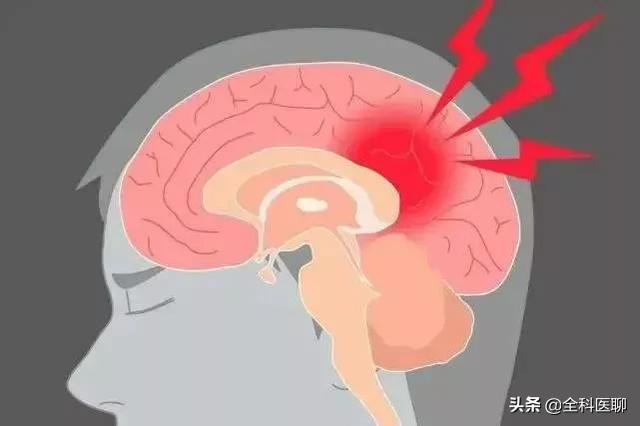
The reason for saying that life expectancy may be shortened if you have had a stroke is because of the following considerations.
First, strokes don't come from nowhere.
However, all patients who have a stroke have multiple causes, such as high blood pressure, diabetes mellitus, hyperlipidemia, atrial fibrillation, bad lifestyle habits (such as staying up all night, alcoholism, smoking, etc.), overweight and obesity, lack of physical activity, transient ischemic attack, severe stenosis of the internal carotid artery, and so on.
And these various causes are responding to factors that are damaging to the health of the body. The presence of these factors is a detrimental factor to the health of the body even if you do not get a stroke. The presence of these factors over a long period of time can also contribute to the occurrence of different diseases in the body, the
For example, hypertension, diabetes, hyperlipidemia and other underlying diseases that are poorly controlled over time can complete the occurrence of atherosclerosis, and many complications can arise, again affecting the patient's life expectancy.
Then again, the persistence of a poor lifestyle is also a great health hazard, again increasing the incidence of cardiovascular disease and other diseases in patients and affecting life expectancy.
So there is no such thing as love without a cause, or hate without a cause, and strokes don't exist without a cause.
Second, many strokes can be very damaging to the body. In particular, some strokes have a rapid onset, a high rate of disability, and a high rate of death.
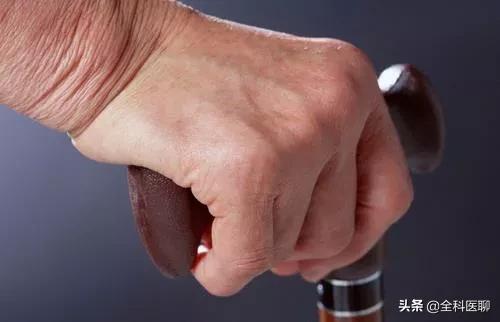
After a stroke, many people are left with varying degrees ofSequelae, manifested in hemiplegia, such asDyskinesia, increased muscle tone, and spastic paralysis of one side of the upper and lower limbs, facial muscles, and the lower part of the tongue muscles. Decreased muscle tone, diminished or absent reflexes with muscle atrophy, etc. There will also beAphasia, crooked mouth, numbness of the limbs, etc.
Sometimes, the after-effects left after the occurrence of a stroke can cause great inconvenience to the patient's life and a decline in the quality of life, especially when they need to be taken care of by other people a lot of the time. At this time, the patient's ability to exercise is weakened, which can also cause cardiovascular diseases to continue to occur, affecting the patient's health.
This is why the severe after-effects of stroke are also a factor in the quality of survival as well as the life expectancy of the patient.
Thirdly, there are a number of diseases that can easily complicate after a stroke, which can also seriously affect the patient's health.
Many stroke patients, because of reduced mobility or acute stress, will be complicated by lung infections, bedsores, upper gastrointestinal bleeding and other diseases, which are also hidden dangers to the patient's health and sometimes even significantly worsen the patient's condition.
So it's possible that having a stroke shortens a patient's life expectancy.
However, it does not necessarily mean that if you have a stroke, your life expectancy will be shortened; again, this needs to be considered in the context of the patient's specific situation.
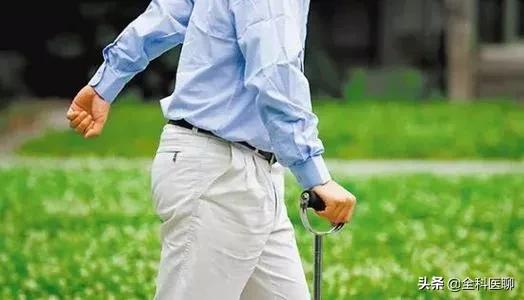
First, some patients have a stroke but the symptoms are not severe and they can get better quickly.
Some stroke patients, for example, develop hemianesthesia, numbness and heaviness in one hand and arm, difficulty in walking, and may also experience unfavorable speech and slurred speech. However, all such reactions are transient and have no obvious sequelae.
In addition, although some people have severe symptoms, with prompt treatment such as thrombolysis, patients recover quickly from their symptoms and are left with no or very mild complications.
Secondly, some patients are left with sequelae, but can intervene on a daily basis with positive lifestyle interventions and are active participants in their recovery.
As the saying goes, many stroke patients, perhaps before they got the disease, did not have good control of their diet, did not actively exercise and did not strictly control high blood pressure, diabetes and other underlying diseases.
But after the disease, realize the importance of protecting the body, so can promptly correct the incorrect practices, regular work and rest, reasonable diet, quit smoking and drinking, can actively control hypertension, high blood fat, high blood sugar and other underlying diseases, actively cooperate with professional doctors for rehabilitation training, regular review, maintain a good state of mind, etc., but for the health is a promotion.
Third, the support of family members to help encourage is often a big influence on a long and healthy life for stroke victims.
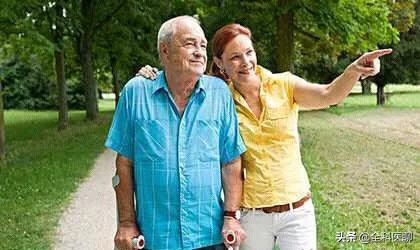
Many stroke patients need not only the meticulous care and assistance of their family members, but also the encouragement of their family members, which is the driving force for them to overcome the disease.
That's why a lot of people who have had a stroke live just as long.
To summarize, stroke is a serious disease that jeopardizes our health, and it is important to do a good job in preventing stroke in our daily life, and the preventive measures have already been mentioned above. In addition, if you are unfortunate enough to have a stroke, you need to face it with a positive mindset, do a good job in rehabilitation and daily life management, overcome the disease, and live an optimistic life.
I am.@General Practice ChatIt's not easy to code. I hope you find it helpful and thank you for your interest!
This one is not a sure thing.
My mother had a stroke 10 years ago, was in a small hospital in the county, the level of medical care is not very good, almost watched my mother half paralyzed, and then transferred to the local municipal hospitals, because the thighs are swollen, the doctor said it was necessary to operate, taking into account the fact that my mother has a variety of chronic illnesses, and finally did not open, and then went to Shanghai Sun Yat-sen Hospital, to see a specialist outpatient clinic, did not ask for hospitalization, to check out the doctor prescribed a few kinds of medicines The doctor prescribed a few medicines, and she went home for rehabilitation.
Maybe the medicine was right, or maybe the rehab was right, and mom was able to move one of her legs as far as mom was able to move it, and her speech slowly recovered, and after a few years of rehab, she was basically able to take care of herself.
In the 6th year, probably due to exhaustion, he had another stroke, and at that time, there was no swallowing function and he could not speak, and now it has been almost 4 years since his second stroke, and his swallowing function has basically recovered, but he can no longer speak.
When I analyze the causes of my mother's stroke, I think it was mainly due to the fact that she gained weight after middle age, did not pay attention to her diet and was overworked. So now, we young people have to take this as a warning. Even though my mom has passed the 10th year after her stroke through treatment and conditioning, her quality of life is not comparable to that of a healthy person.
It's too late to realize the preciousness when one loses one's health [teeth bared]
My coworker's father had a stroke and lived for more than 20 years. He went back to the military hospital for treatment after he retired and had a stroke in his hometown.
The treatment was very successful and timely, and it is generally said that in a few months you get the disease to live for years.
One person at a time has a lot to do with treatment, and care.
My father had a stroke in the tenth month of the lunar calendar and died after eleven years of life.
The first time I was hospitalized for six months, when the unit was reimbursed, it cost more than 20,000 yuan.
He was hospitalized every year after that, and for those last two years, he was hospitalized twice a year.
Thanks to my mother's good care, clean and regular diet.
Stroke is one person at a time, the key is treatment care, and combined, my coworker's father is the longest living I've ever seen.
Is it true that people who have had a stroke don't live long? Although there are more than 12 million stroke patients in China, and more than 2 million people die from stroke every year. But this does not mean that people who have had a stroke will not live long, like the most feared AIDS intervention properly, can still live ten or twenty years it.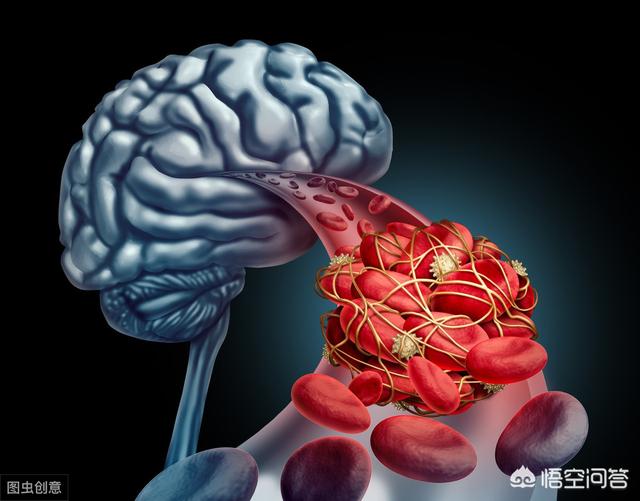
1, stroke is easy to die
First of all strokes are prone to death in patients with severe conditions such as hemiplegia, untimely detection and intervention, and inappropriate treatment.
2, Causes of Stroke
Stroke refers to ischemic stroke and hemorrhagic stroke. Ischemic stroke is mainly high blood fat, high blood fat is easy to cause atherosclerosis, and then lead to blood clots, and then ischemic. Hemorrhagic stroke is mainly hypertension, we know that hypertension is high blood pressure, and then easily lead to blood vessel bleeding.
There are hundreds of millions of people with high blood lipids and about 300 million with high blood pressure in China. This can easily lead to stroke and then lead to stroke. Coupled with the improvement of living standards, many people now eat well and eat a lot. It is also one of the indirect causes of stroke.
3, Stroke prevention

The main thing is actually pre-disease prevention, which is frankly the prevention of hyperlipidemia and hypertension and the prevention of complications.
(1) Hyperlipidemia and complications
1) Complication prevention:Patients already suffering from diabetes, hypertension, and thyroid disorders should be especially careful about causing hyperlipidemia;
2) Then there's obesity:Obesity increases the risk of hyperlipidemia, with waist circumference greater than 90 in men and 85 in women, and the risk of hyperlipidemia in people between the ages of 40 and 79 is 4.5 times higher than that of normal people.
(2) Complications of hypertension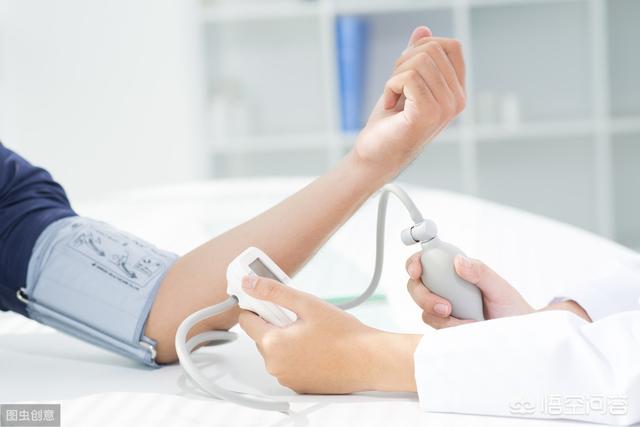
High blood pressure can easily cause other diseases, usually with increased blood pressure being the earliest manifestation:
1) Eat right: Control the content of fat and cholesterol in the diet, pay attention to the normal level of blood lipids and blood pressure in the physical examination of the school, thus reducing the damage and stress on blood vessels;
2) Refuse alcohol and tobacco:Not only do you not smoke yourself, but you should prevent second-hand and third-hand smoke. Drink alcohol in moderation, no more than 25g per day for men and 15g per day for women
3) Sleep and stress:The last thing is to make sure you get enough sleep, as well as an optimistic mental state; too much stress can also lead to high blood pressure.
In summary, the core of stroke is prevention prevention and prevention. Especially if there are already other conditions that can cause complications from a stroke. Then there is the special attention that stroke patients pay to treatments and interventions that reduce the risk of death.
People just don't live long once they've had a stroke?

First of all, this is a stroke of Chinese medicine doctors on the name of the disease, Western medicine doctors called cerebral infarction, etc., which is, people but a stroke is not live soon, this is not necessarily, because each person's actual situation is different, and what problems have to be different from person to person, I've seen some of the patients who have had a stroke of only a few months, some one or two decades, and even some even longer, in fact, then again, got a stroke, the patient has this concern is very normal! In fact, it is normal for people suffering from stroke to have such worries. But some things, not how you want to heart like how, you can only live a regular life, insist on taking the medication prescribed by the doctor every day, and live happily every day, no matter what it will happen tomorrow. In fact, I am also a cerebral infarction patients, but also everyone called the stroke, I got a cerebral infarction when I was just forty years old and a few months, because I think they are young, thought the cerebral infarction are generally older people, I did not think that I would get this disease, so the beginning of a little bit of symptomatic times, thought that they are tired of work, did not pay attention to it, after two days more and more serious only to go to the hospital, and then missed the cerebral infarction! The best means of treatment thrombolytic therapy, now think of regret, originally we live from the city of three hospitals only a dozen minutes drive, because of their own lack of knowledge of cerebral infarction disease, missed the thrombolytic, their own only out of the hospital, the affected foot high muscle tone, walking ugly, the affected hand can not hold chopsticks to eat, then also often think, got this disease for fear of not living for a long time, and then think carefully, you are every day like this also There is no use, their own happy every day, every day on time medication, adhere to the rehabilitation exercise, regular life, not big fish and meat, quit smoking and alcohol, their weight down to normal levels, because before very much like to drink, the body is very obese, weighing more than their own standard weight of more than sixty pounds, after one or two years of adherence to the rehabilitation exercise, the affected hand and foot rehabilitation of more than ninety percent, away from one hundred percent is still a little bit short of the eyes of others, is not to see any problem, but the problem is not to see any problem, but the problem is to see any problem. I can't see any problem, but I know in my heart, from the previous perfect is still a little short, I now have to do is no matter how long it can live, I still insist on exercising every day, regular life, develop good dietary habits, continue to quit smoking and drinking, maintain a normal body weight, of course, every day to take medication can't be less, summarize, keep your mouth shut, don't eat and drink, take a step forward, and insist on exercising every day, that's what I'm now! Every day is doing things, the rest of what things do not care, happy every day. (Note that the above is just sharing, because the actual situation of each person is different, please do not imitate!)

This question and answer are from the site users, does not represent the position of the site, such as infringement, please contact the administrator to delete.